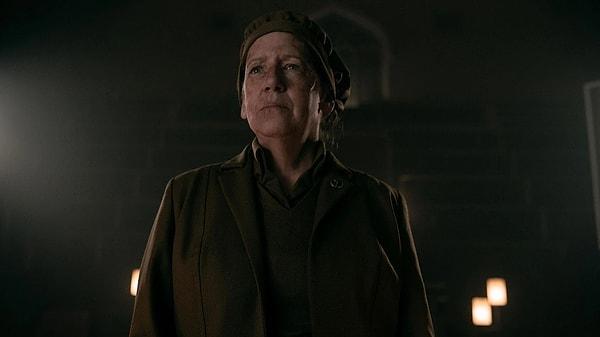After the series finale, the franchise will be moving forward with an adaption of The Testaments, the sequel to Margaret Atwood's original book. It will follow an elderly version of Aunt Lydia during the middle Gilead period, a time when piety, radicalism, and obedience have become the norm. It's difficult to reconcile the Lydia we read about in the novels and the Lydia in the series. Some fans believe it's impossible, and in many ways it is.
Their backstories are different. Testaments Lydia was a family court judge who believed in liberty, equality, and democracy. After congress was slaughtered, a group of young men burst into the courthouse and threw her into a van. They broke her down with forced confinement, sensory deprivation, and starvation until she felt a sense of loyalty to her captors. It was a common brainwashing technique--one that she herself seems to have mastered.
Once she had proven her loyalty, she was introduced Aunt Vidala, Aunt Helena, and Aunt Elizabeth--a group that she quickly dominated. They became the founding aunts, tasked with building a separate women's sphere of government. They came up with uniforms, laws, prayers, and rituals--the groundwork for much of the female system we've come to know in the franchise. The reason Commander Judd was credited for this work in the novels was because he claimed their ideas as his own and used them to gain clout with the other commanders. They had as much influence on the formation of the system as the rest of the Sons of Jacob. Lydia was proud that she had accomplished so much in so little time, but she was wholeheartedly ashamed of what she was doing. She didn't sign up for the task of indoctrinating and oppressing her own gender. She was never blinded by rhetoric. She wrote much of that rhetoric herself, and she took great pleasure in the fact that she was able to slip in references to female empowerment and paganism. It was her own personal form of humor.


